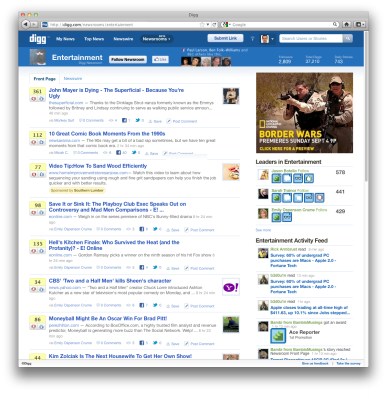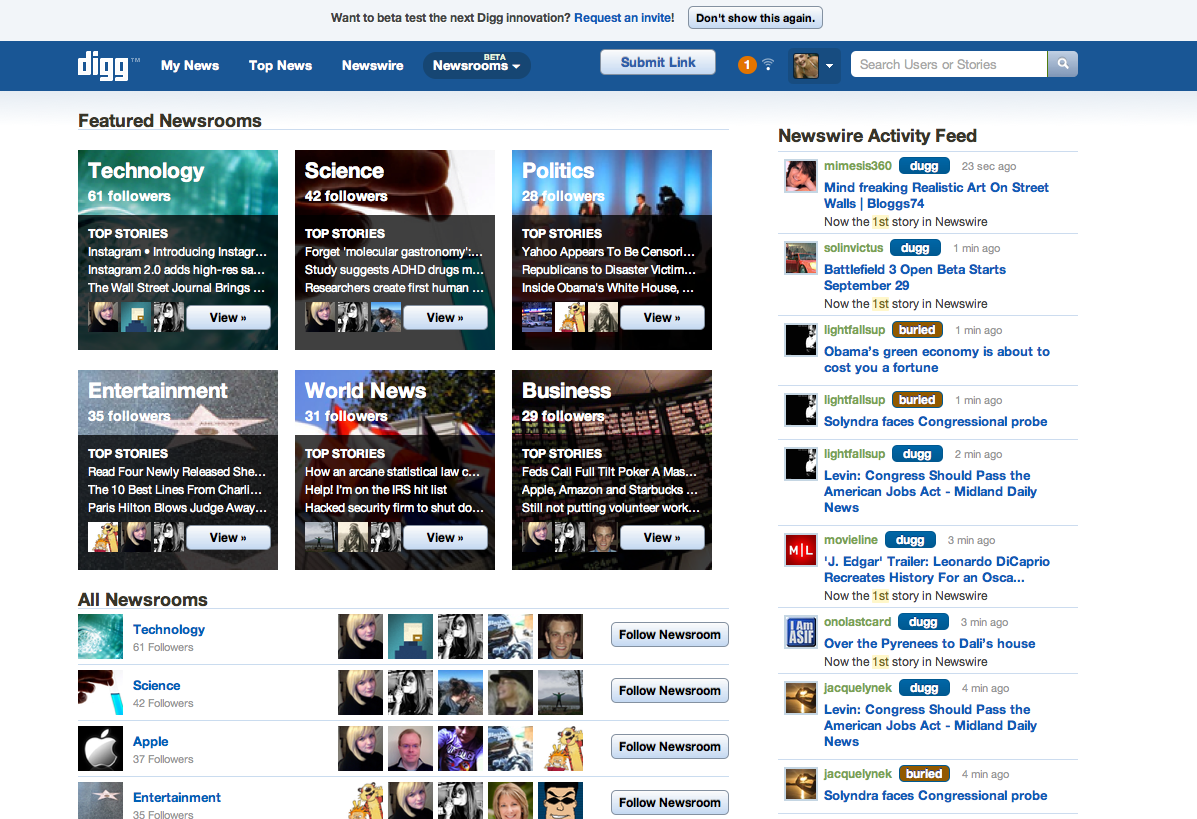With 17 million monthly uniques at its disposal, news aggregator Digg, which is attempting to overcome the user exodus caused by its unpopular Version 4 redesign in late August 2010, needs to find a way to keep its usership engaged and growing, if it ever wants to move beyond being a Silicon Valley cautionary tale.
It’s solution? The Topic Newsrooms beta, which separates news into top categories like Technology, Entertainment, World News and even topics as granular as Lady Gaga or Apple. Basically Digg is attempting to rebuild its user communities around interest in specific news. “There are a lot of signals out there,” Digg CEO Matt Williams, who describes what happened with Digg Version 4 as a “tragedy,” tells me, “It’s difficult to sort out what’s meaningful on a given topic versus what’s popular.”
Newsrooms will consist of two elements, a Front Page, reminiscent of the Digg “Popular” page, and a Newswire page, which is a realtime feed of all the stories submitted for a given topic. The Digg algorithm will take a look at signals like recency, Likes, LinkedIn shares and Tweets to determine whether a story will hit the Newsroom Frontpage.
In order to make the Front Page of a Newsroom, a story will also have to hit a critical mass of Diggs and Comments by Digg users, which signify a story’s “meaningfulness,” similar to how stories became popular on Digg in the past. The most “meaningful” stories from the Newsrooms will eventually hit Top News, or the overall Digg front page.
“With this new beta, Digg is also experimenting with showing user activity in realtime, and rewarding users with badges for participation, like the “Ace Reporter” badge, which users get for a story they submitted to Digg on the Newsroom Front Page.
Will it work? “Overall, I think the ‘newsrooms’ project is a gutsy attempt by Digg to bring in new users as well as some of the old ones,” says long time power user and VP of BizDev at Hasai Social Media John Boitnott, “However, they had better be ready to stick to their guns and make this new beta work over the long-term.”
The beta, which is invite only initially, is slowly rolling out to hundreds of users today and will eventually hit thousands, Williams says. I guess Digg has learned its lesson with regards to sudden changes.

